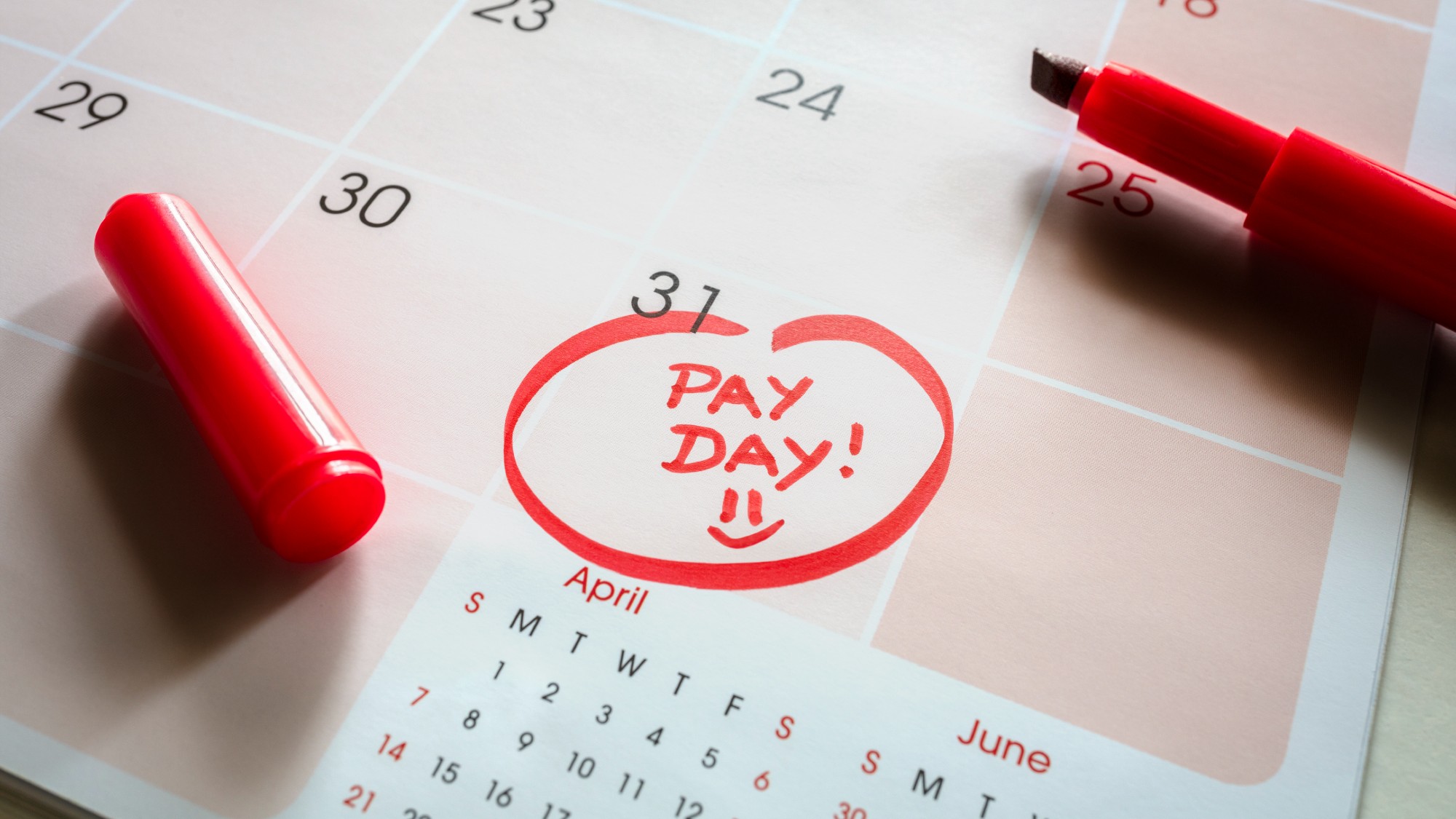What is early direct deposit and how does it work?
Next time you are in a financial pinch, this option can get you early access to your paycheck


A free daily email with the biggest news stories of the day – and the best features from TheWeek.com
You are now subscribed
Your newsletter sign-up was successful
If you are facing a tight time financially, there will be months when receiving your paycheck even a little bit earlier will offer some much-needed relief. The good news is, there are several ways to make this happen — although they are not all created equal.
One avenue is online paycheck advances, which a "growing number of Americans who need cash before their next payday are tapping," said The New York Times. But these advances carry fees. Another option is early direct deposit; if you have a bank account at an institution that offers it, this choice "allows you to get paid up to two days early — or in some cases, even earlier, depending on the type of deposit," said Experian. Plus, there are no fees involved.
What is early direct deposit?
Early direct deposit "gives bank or credit union customers the ability to access their paychecks earlier than their scheduled payday," said Yahoo Finance. This can happen when the automated clearing house (ACH) network is used to make payments via what is known as direct deposit.
The Week
Escape your echo chamber. Get the facts behind the news, plus analysis from multiple perspectives.

Sign up for The Week's Free Newsletters
From our morning news briefing to a weekly Good News Newsletter, get the best of The Week delivered directly to your inbox.
From our morning news briefing to a weekly Good News Newsletter, get the best of The Week delivered directly to your inbox.
Usually, there is a waiting period for the funds to clear between when your employer processes the payroll and submits the direct deposit to the bank. But with early direct deposit, the bank "skips the usual waiting period for the funds to clear," said Scott Lieberman, the founder of TouchdownMoney.com, to U.S. News & World Report.
This means you will have access to your funds sooner — often around two days earlier than you would have otherwise. For example, said U.S. News & World Report, "if you get paid twice a month, such as on the 15th and 30th, now you can start paying bills and earning interest by the 13th and 28th of each month."
How is it different than online paycheck advances?
While early direct deposit simply gives you access to your incoming funds a little bit sooner, "digital pay-advance tools let workers receive part of their wages early, then repay the funds on their next payday," said the Times. Sometimes this option is accessible "through companies that team up with their employers, like Payactiv, or directly from an array of finance apps like Dave and EarnIn." Contrastingly, early direct deposit is provided by certain banks.
Another crucial difference between early direct deposit and online paycheck advances is the cost. While "some services may offer the advances free of charge," it's often the case that "advances are free only if the worker agrees to wait a few days for the money," said the Times. In other words, if they "want the funds right away — which they typically do — they must pay a fee for 'instant' access."
A free daily email with the biggest news stories of the day – and the best features from TheWeek.com
Another possible cost incurred with paycheck advance apps is fees that are referred to as "tips." While technically optional, "apps can be aggressive in seeking them, such as by including default tip amounts," with the average "tip" around $4, said the Times.
There is also the risk of overdraft fees with online paycheck advances if a "worker’s next paycheck is less than expected — say, the worker was scheduled for fewer hours — or if it arrives later than anticipated," resulting in their account lacking sufficient funds "to cover the withdrawal by the app."
Because you are not actually borrowing money with early direct deposit, this will not be a risk with that option. Though, of course, if your deposit gets delayed for any reason and debits in excess of your account balance hit, you could still face fees.
Where can you access early direct deposit?
While online paycheck advances are accessible through companies and apps, you can get early direct deposit directly from the bank where you have your checking account. A number of banks already offer the service, and "more and more banks are offering" it, though "your bank may have specific requirements for who qualifies for early direct deposit," said Yahoo Finance.
At the time of writing, some examples of banks that offer early direct deposit include:
- Ally Bank
- Capital One
- Chase
- Fifth Third Bank
- Huntington Bank
- KeyBank
- PenFed Credit Union
- Wells Fargo
Becca Stanek has worked as an editor and writer in the personal finance space since 2017. She previously served as a deputy editor and later a managing editor overseeing investing and savings content at LendingTree and as an editor at the financial startup SmartAsset, where she focused on retirement- and financial-adviser-related content. Before that, Becca was a staff writer at The Week, primarily contributing to Speed Reads.
